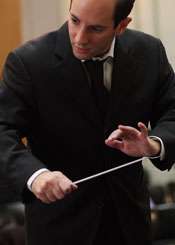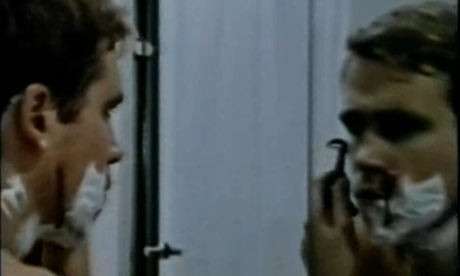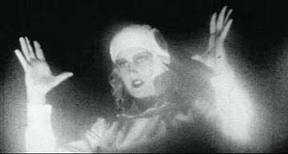|
Back
Gilding and Killing the Lily New York
Anthology Film Archives, 32 Second Avenue
06/07/2013 - June 8, 2013
“Sound of Silent Film Festival”
Patrick Morehead: Must Like Magic (Steve Stein, Director)
Seth Boustead: Heart of the World (Guy Maddin, Director)
Randall West: G.M. (Randall West, Director)
William Susman: Native New Yorker (Steve Bilich, Director)
Douglas Johnson: The Cabinet of Jan Svankmajer (The Quay Brothers, Directors)
Eric Malmquist: Copy Shop (Virgil Widrich, Director)
Amos Gillespsie: Father and Daughter (Michael Dudok de Wit, Director)
Brian O’Hern: The Big Shave (Martin Scorsese, Director)
Mike Leghorn: First Kiss (Gus Van Sant, Director)
Amy Wurtz: Mermaid (Tezuka Osamu, Director)
Georges Bizet, arranged by Seth Boustead: Carmen (Alexander Payne, Director)
Access Contemporary Music: Seth Boustead (Executive Director), Francesco Milioto (Artistic Director); Palomar Ensemble: Lesley Swanson (Flute), Christie Miller (Clarinet and bass clarinet), Nathan Bojko (Percussion), Hulya Alpakin (Piano), Elizabveth Brausa (Violin), Alyson Berger (Cello); Guest Artists: Stephanie Chigas (Mezzo-soprano), Darren Anderson (Tenor), Amos Gillespie (Saxophone), Marshall Sealy (French Horn), Gregory Harringon (Violin) Alexandra Honisberg (Viola); Francesco Milioto (Conductor)

F.Milioto (© New Millennium Orchestra)
Obviously, “silent film”, like Cage’s 4’33” was never supposed to be silent. From the 1880’s onward, solo violins, sound effects, tinny pianos, then small orchestras followed the action. At first improvised, then composed, and finally with dedicated film music written by serious composers (who used their Hollywood lucre to live the way composers were never supposed to live).
So what does one do with silent films which are supposed to be silent, made over the past 50 years? Composer Seth Boustead and conductor Francesco Milioto have taken the controversial stand that they should gild these lilies with a tasteful background. Though in some cases, this meant spraying musical insecticide on some very delicate plants.
In fact, for eight years, Chicago’s Access Contemporary Music have produced a popular “Sound of Silent Film Festival.” Last night (and tonight,) eleven of these films have made their way into Anthology Film Archives, which ordinarily does not enhance their offerings.

S. Boustead (© Sethboustead.com)
Mr. Boustead introduced each film with great aplomb, introduced some of the audience, and gave equal credit to the small tasteful Palomar musical ensemble. Sad to say, though, I must confess that the films were so gorgeous, funny, breathtaking, hilarious, brilliant etc etc, that I inevitably doffed my music-reviewer hat just to watch them.
There were a few exceptions. Sideways director Alexander Payne had the most hilarious Carmen I had ever seen, all taking place in a gas station (Car-Men?), and the funniest single line since Mel Brooks. From the seductive Carmen, “If you keep me supplied with Ding-Dongs, gas and Taco Sauce, then I’ll be your girlfriend.”
I don’t know Payne’s own music, but Bizet’s original, arranged by Mr. Boustead, with voices by Stephanie Chigas and Darren Anderson, could not be improvable, even with such a total jewel.
Then too, Douglas Johnson’s pseudo-Mitteleuropa harmonies for a crazy Czech cartoon, The Cabinet of Jan Svankmajer was fitting enough. Czech short films are the quirkiest in the world, and while this was not offbeat music, the way a good Czech composer could have done it, the music was not inappropriate.
Some films were just so stunning that one couldn’t possibly hear the music, despite conductor Milioto’s best efforts. Must Like Magic was a shaggy dog movie about a vagrant getting a job as a magician’s assistant. Pointless, likeable with suitable background music. G.M was an absolutely brilliant remake using the 1890’s cinematic tricks of Georges Méliès. Tricks still difficult to figure out today. So stunning that the pseudo-scary music by Randall West was a mere accompaniment.
For the more placid movies, the right placid music was composed. A bitter-sweet Dutch quasi-cartoon, Fathers and Daughters, and a sweet-bitter-sweet Japanese anime cartoon used music which helped pacify the situations. The former showed bicycles and more bicycles in a fantasy landscape, with saxophonist Amos Gillespie’s waltzes highlighting the motion. Tezuka Osamu’s Mermaid had a dream situation: a boy imagines that a fish is a mermaid. (That’s sweet.) His parents send him to an insane asylum where lobotomies and negative therapy try to have him change to reality. (That’s bitter). He escapes...goes back to the water...and goes away with his sweet mermaid. Amy Wurtz’ music had little character of its own, but the film made such wondrous statements, character was in the visual.

From The Big Shave (© Warner Brothers)
Two films had original music not only wrong, but incorrigibly damaging. Martin Scorsese’s metaphorical Vietnam War movie showing a young man shaving until he’s a blood-soaked mess was scored by Brian O’Hern with quotes from 60’s pop and an ersatz patriotic finale. Mr. Scorsese, though, is the absolute master of background music. He wouldn’t have stooped to such manifest lowlife. Instead, he used the sweet trumpet and orchestra of Bunny Berrigan as the biting ironic counterpoint. That upbeat 1930’s music made the terror of this sanguine six minutes all the more terrifying.

From The Heart of the World (© Kinodeliro)
Guy Maddin’s Heart of the World, the crazy hyper-dream homage to silent film (and indescribable to those who haven’t seen it), needed no extra tunes by Seth Boustead. Guy Maddin had selected Time Forward, by Georgy Sviridov, a failed Shostakovichian, one of Josef Stalin’s favorites. From the very start of the film, we should have heard the original obsessive orchestral machine-gun marches, from Svirdov’s equally crazy documentary produced, I guess in the 1930’s. Mr. Boustead’s attempt to replace Maddin’s own choice not only destroyed the hyper-kinetic rhythm of the film, it actually dampened the effects. For those of us fortunate to have seen the original, this was travesty.
I leave the most amazing, with the nicest surprise, for the end. Virgil Widrich’s Copy Shop was like Groundhog Day writ large. A blurry black-and-white cheap movie shows a man waking up and going to his job copying pictures and documents in a rundown shop. The machine somehow copies a picture of himself, which turns into two live copies of the man following themselves around the same blurry neighborhood.
But why have one doppelganger when you can have three...four, dozens and finally infinite copies of this man following each other, in huge crowds, driving a car, milling in the streets...
How Virgil Widrich did this was his cinematic secret. The music by Eric Malmquist was quiet, unassuming, allowing the visuals to do their work until the last catastrophic ending.
But was this the ending? No, for in the last scene, the music changes to Vera Lynn’s wartime classic, “We’ll meet again, don’t know where, don’t know when...”
Woody Allen did the same thing in Crimes and Misdemeanors, at the finale, when the blind Alan Alda is dancing to the strains of “I Only Have Eyes for You.” But in last night’s increasingly bewitching two hours of film, that sudden magical inspiration should have been the key in transforming silence into sound.
Harry Rolnick
|